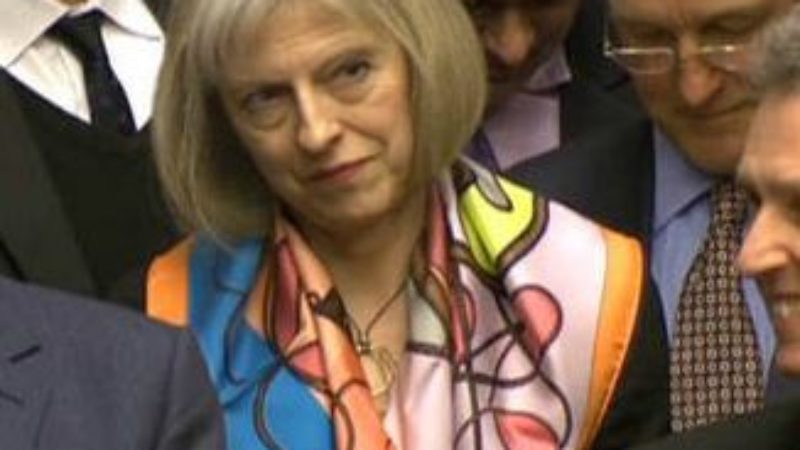
When The Home Secretary stood up in the House of Commons to explain the burqa clad escape of terror suspect Mohammed Ahmed Mohammed, she was keen to lay the blame for the weakening of the previous Control Order regime at the door of the courts – an accusation that the Prime Minister repeated at PMQs today. Even if we wanted to return to the previous regime of control orders, she argued, we couldn’t because the courts would not let us.
Anyone who has not followed this issue could be forgiven for thinking this is another example of a government which wanted to be tough and protect the public but was stopped from doing so by those pesky out of touch judges. However, this version of events, so keenly peddled by embarrassed Ministers this week, is not true.
The weakening of the anti terror regime was not done because the Government’s hand was forced. It was a deliberate choice. Anyone reading the statement made by Teresa May introducing TPIMs (the replacement for Control Orders) back in January 2011 will not find a mention of a reluctant Government being forced to water down a regime it wanted to keep. Instead she said the previous regime was “excessive and unnecessary”. She boasted that the new measured would have a two year maximum time limit “which will clearly demonstrate that these are targeted, temporary measures” and that “individuals will have greater access to communications, including to a mobile phone and to a home computer”. And she rounded off her statement declaring that this new regime would “restore our civil liberties”.
And that reasoning is the crucial point. It is the Government’s first duty to protect the public. Yet this Government made a deliberate considered choice to increase risk to the public because it was more concerned with the civil liberties of the terror suspects subject to these orders than it was about public safety.
The Government boasted this week that the new regime had been accompanied by greater resources for the police and security services. But they neglected to say that those resources were necessary (and probably demanded) precisely because of the greater pressure put on the police and security services as a result of the Government’s decision to weaken the regime. By allowing greater freedom of movement and access to technology for terror suspects the government created a need for more surveillance. Surveillance is expensive and difficult. Hence the need for the greater resources.
How could a responsible government make such a decision? Because they had convinced themselves that the anti-terrorist laws put in place by the previous government had compromised civil liberties and that the balance had to be reset. A fundamentally wrong analysis led to a fundamentally irresponsible policy decision. And it has failed.
In the five years in which relocation powers were used under the previous Government’s Control Orders, no suspects escaped. Under the new, weaker regime, two have escaped in 10 months
If that is not bad enough, the dangers created by the Government’s decision are about to increase. Ministers chose to put a sunset clause into the TPIM regime meaning that all the orders would lapse after two years unless new evidence came forward. Never mind that the old evidence may still be highly relevant. The practical effect of this sunset clause is that, in January, most remaining TPIMs lapse and the controls on potentially highly dangerous suspects are weakened further. So as a result of a deliberate, unforced Government decision – not a court decision – suspects which the state has deemed worthy of restriction and close monitoring for years will have that regime lifted.
It is important to remember who we are talking about in this situation. These are not just people who have made some hard line speeches or viewed a few unsavoury websites. The Government’s independent reviewer of terrorism legislation, David Anderson, described these suspects as being at “the highest end of seriousness”.
The new TPIMs regime has proven to be a failure. Some of us warned at the time that it was an irresponsible decision which increased risk to the public. Our warnings were not heeded. Yet the Prime Minister still has time to at least revisit the sunset clause and extend the remaining orders. If he does not do so, it will be a gross dereliction of duty for someone whose first job is to protect the public.
Pat McFadden is Labour MP for Wolverhampton South East




More from LabourList
‘Labour’s quiet quest for democratic renewal’
‘Labour promised to make work pay. Now it must deliver for young people’
‘Council Tax shouldn’t punish those who have the least or those we owe the most’